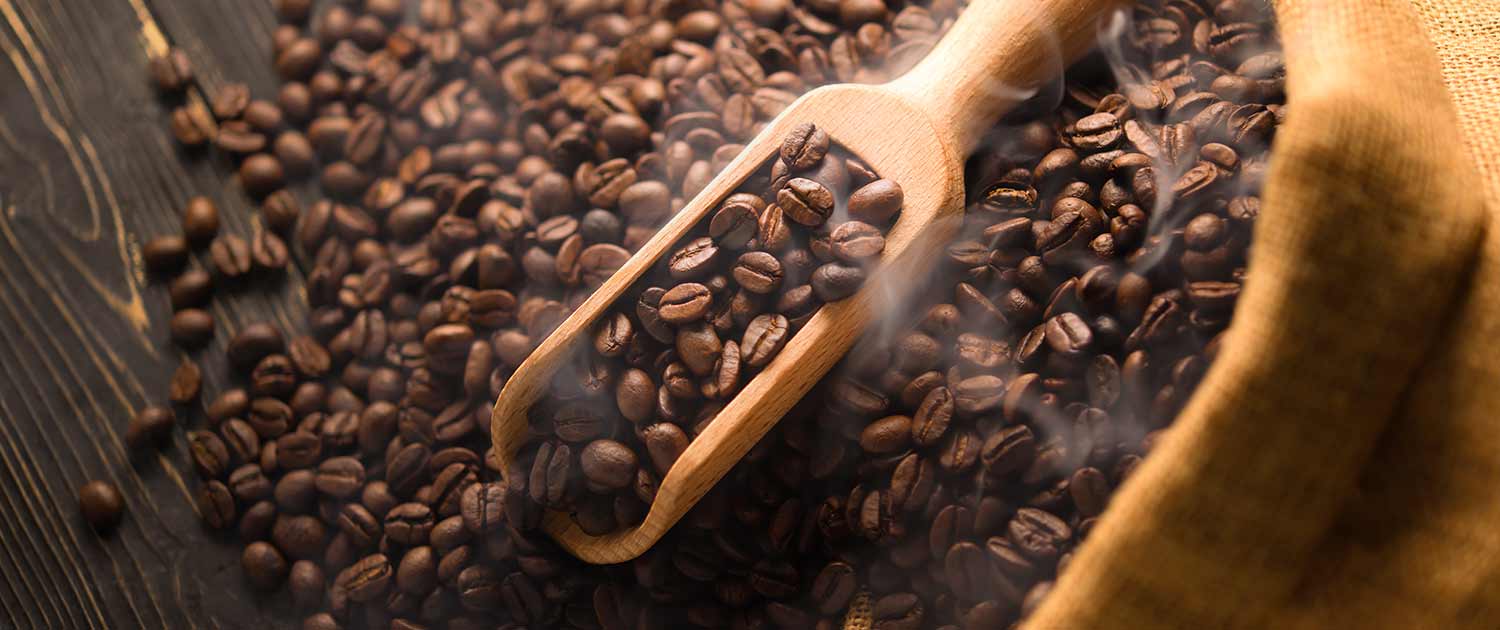The health benefits of drinking coffee
Jo loves coffee – you’ll hear her talking about it during her workouts regularly.
Recently, she was approached by Alex Higham, the founder of Exhale Coffee. Alex is an expert in the chemical composition of coffee and has conducted all kinds of experiments with labs to test the various properties of his coffee blend as well as others.
Imagine a coffee with health benefits in the same league as fresh fruit and vegetables? Well that’s what Alex and his team have been researching and developing for the last 2 years and Jo wanted to find out more.
She spent some time on Zoom with Alex recently and we’ve put together this amazing interview. If you think you know about the properties of coffee and how important it is in our lives – then think again!
As a taster, did you know that 1 cup of exhale coffee has the same antioxidant power as 12 punnets of blueberries, 55 oranges or 1.2kg of kale!
Find out more in this interview between Jo and Alex …
Enjoy the full interview below – or have a read of some of the highlights below …
The health benefits of drinking coffee
Alex Higham: Coffee is a fruit – coffee grows on trees and coffee starts its life as a cherry So a coffee bean, isn’t a bean at all It’s a seed. So coffee is a fruit!
Jo Tuffrey: Actually, I’ve never really thought where coffee comes from!
Alex Higham: It’s seen as this lifeless brown bean that makes this kind of black coffee, but all I’m trying to say is, look, coffee is a fruit – coffee comes from fruit!
Jo Tuffrey: Introduce yourself and say who you are ….!
Alex Higham: Yes, I’m Alex. The company is called Exhale Coffee and we launched around six months ago in lockdown after a good two or three years of researching, developing and building the idea for the business It’s been a long journey, but basically over the last few years, I have been reading more and more about the science around coffee.
More and more, the studies are pointing towards coffee as being a superfood with lots of different health benefits. So it’s potentially been associated with the reduced risk of all sorts of different diseases.
Coffee is one of the most drunk beverages in the world. It’s also one of the most studied. In the last 10 years, there has been over 8,000 studies on coffee and its implications on health alone. Because it’s so wildly drunk, people are really interested in how it affects your health.
Jo Tuffrey: So what are the benefits then of drinking coffee?
Alex Higham: There’s been all of these studies over many decades. The studies have moved from observational studies, where they look for associations between drinking coffee and different diseases, and looking at the kinds of mechanisms of the action of drinking coffee could be having in the body, which could be causing these benefits.
How often should you have a cup of coffee?
Jo Tuffrey: Would you advocate drinking your coffee all through the day or whenever suits the person?
Alex Higham: I would advocate drinking coffee all day long, right up until bedtime, but to choose a decaf after a certain time of the day. And it depends on your own personal gene …
So you have a gene which dictates how fast you are breaking down the coffee and caffeine and another gene which dictates how fast you are absorbing the caffeine. So it’s your combination of those two genes, which dictates how long the caffeine will have an effect in your body.
I’m actually a really slow caffeine metabolizer. So if I have a coffee after about lunchtime, I can’t sleep at night, whereas other people can. The fast metabolizers of caffeine can have a coffee just before bed and they’ll burn off the caffeine and then they’ll sleep.
However, decaf really does have a lot of benefits as well. So in the afternoon I switched to decaf and then recently have started having a decaf before bed because there’s a whole load of benefits around fasting.
Does coffee help with pilates and fitness?
Jo Tuffrey: Will we be able to do more planks?! Will we be able to do more curl ups? Is it shown to enhance performance?
Alex Higham: Oh, definitely. I mean, caffeine in particular is one of the few proven ergogenic cases for sport.
Up until the early nineties, coffee was banned by the world anti-doping association, but then it made it legal more recently. The studies show that if you drink quite a lot of coffee, (between three and six milligrams of caffeine per kilo of body weight), which is probably about the equivalent of two double espressos – that’s where you would get the real benefit.
Jo Tuffrey: I don’t think my clients would allow me to have that!
Alex Higham: No, exactly. But if they do there’s two separate meta analyses, which show that caffeine increases exercise performance by 11 to 12% on average.
How do you make the ultimate cup of coffee?
Jo Tuffrey: Now I’ve heard that you shouldn’t pour boiling water onto coffee. Should you do that or not?
Alex Higham: No! So if you add boiling water to the coffee it can scold the beans and it can over extract some of the bitter flavour compounds in the coffee.
So the advice we give is to boil the kettle … leave it 30 seconds off the boil and then pour it!
However – you don’t want to let it cool too much because the extraction of all of the compounds and the healthy compounds, the good stuff from coffee is a chemical reaction. Chemical reactions are all sped up by hotter temperatures. It’s standard law of chemistry. The hotter, the temperature during the reaction, the faster it will take place.
If you let the water cool too much, then it’s not going to be hot enough to extract the healthy compounds. So you want to let it cool just off the boil, but not too much.
Find out more about Exhale Coffee
Visit Alex’s business at https://exhalecoffee.com/

